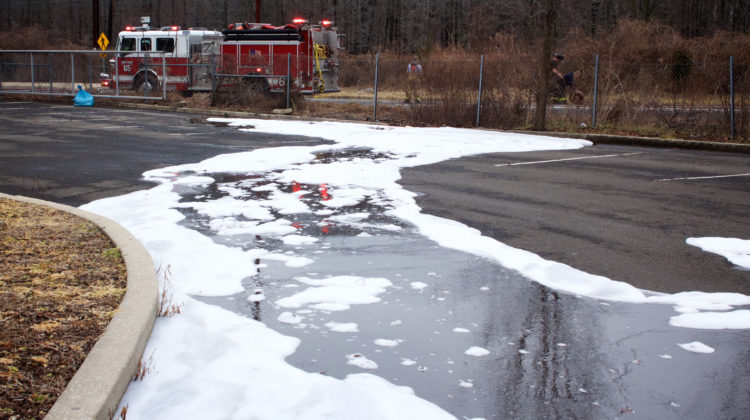[ad_1]

By Christina Grube & Napoli Shkolnik PLLC
(MASS TORT NEWS) – The U.S. Government Accountability Office (GOA) confirmed that the Department of Defense (DOD) must legally phase out its use of the PFAS-based Aqueous film-forming foam (AFFF) by October of 2023. The change comes after a 2021 military investigation re-categorized the group of manmade chemical compounds commonly referred to as perfluoroalkyl or polyfluoroalkyl substances (or PFAS) as toxic to humans.
Under the 2020 National Defense Authorization Act of 2020, the military has two years after such a designation to replace it. Sources say the DOD has found six potential replacements, though none of which meet the required guidelines. The 2020 legislation forced military administrators to re-examine the safety of using the heat-resistant materials which contain dangerous PFAS chemicals such as Perfluorooctanesulfonic acid (PFOS) or Perfluorooctanoic acid (PFOA). Should administrators determine PFAS chemicals as toxic under the guidelines set forth in the 1986 Emergency Planning and Community Right-To-Know Act, the bill gives the military two years to replace products containing PFAS.
The U.S. Navy first introduced PFAS to military firefighting foam in 1963 for the chemicals’ remarkable resistance to heat. W. L. Gore & Associates followed suit and introduced PFAS treated fire-fighting gear in 1976. PFAS gear and foam became standard practice for fire agencies and military installations across the nation, causing millions of service men and women to be unknowingly exposed to toxic chemicals on a daily basis, causing many to develop severe health conditions.
The EPA cites studies which show contact or ingestion of PFAS may cause an increased risk of cancer, decreased immunity, decreased fertility, and developmental delays in children, among other health risks. While proponents of AFFF cite its use in putting out oil fires, in practice military facilities use AFFF for everything from training exercises to washing their trucks. Because installations have used the foam so frequently and on such large scales over such long time periods, chemical run-off has contaminated water sources, exposing civilians and wildlife to PFAS contamination.
Though the military only changed the safety status of PFAS in 2021, records show producers knew the potential dangers of PFAS exposure to humans much earlier. A 1970 memo within the DuPont chemical company discussed a then recent study of a PFAS chemical, describing it as “highly toxic when inhaled and moderately toxic when ingested.” The same year, the president of the Chemical Concentrates Corporation wrote to the National Fire Protection Agency to warn of PFAS’ lethal effects on marine life. 3M documents dated 1983 identified decreased immunity and fertility as side effects of PFAS exposure. Seven years later, another 3M study identified PFAS exposure as a catalyst for testicular cancer, yet continued producing products containing the chemicals without warning consumers.
After a decade of tort claims filed against AFFF manufacturers, the Judicial Panel on Multidistrict Litigation (JPML) consolidated all federal court cases on AFFF exposure into an MDL in 2018. The case, assigned to Judge Richard Gergel of the District of South Carolina, now contains more than 3200 associated cases. Plaintiffs’ claims include water providers with contaminated water, property damage claims from affected landowners, claims for medical monitoring, and personal injury actions.
On September 16, 2022, Judge Gergel denied the defendants’ summary judgment motion, based on the “government contractor defense.” In certain situations, this defense shields private contractors from tort liability for products that were manufactured for the government (including the U.S. military) in compliance with government specifications. However Judge Gergel denied defendants’ motion due to the existence of material questions of fact. Judge Gergel denying the defendants government contractor defense effectively cleared another hurdle in plaintiffs’ road to get to trial.
Court documents (below) show the first trial to begin June 5, 2023 for the claims of contaminated water by the City of Stuart, FL. Many predict cases from water providers to take precedence in future court scheduling. In the meantime, case numbers continue rising as more water providers and land owners undergo PFAS contamination and exposed individuals receive diagnoses linked to PFAS exposure.
[ad_2]




